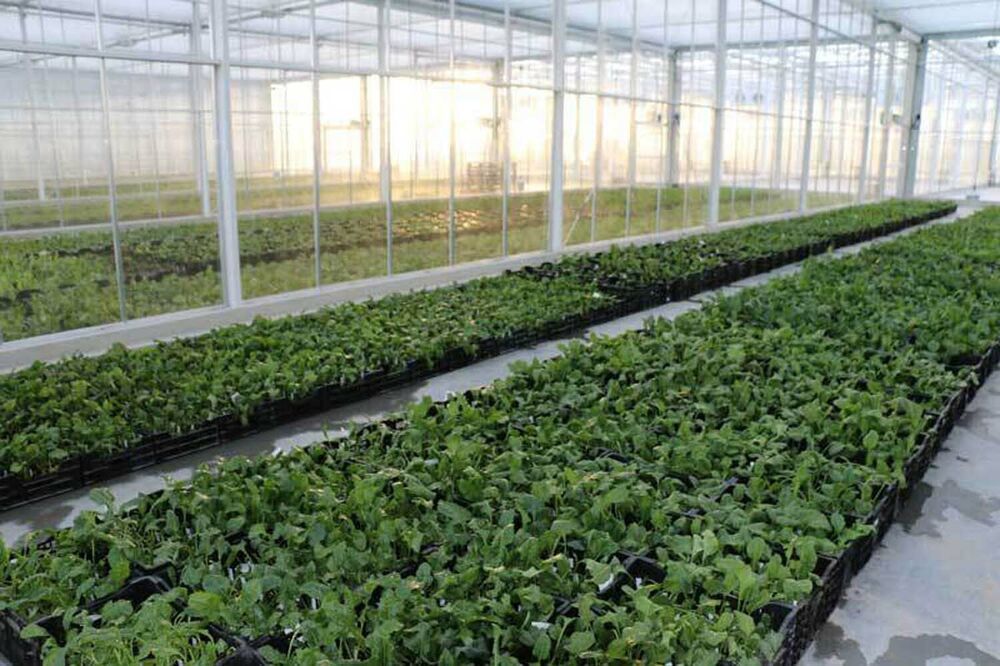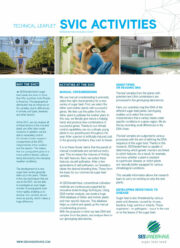In 2016, SESVanderHave opened a new 20 million Euro R&D centre – the SESVanderHave Innovation Center (SVIC).
In the presence of 250 international clients and scientists, the 20 million Euro complex was opened by then Belgian Federal Agriculture Minister Willy Borsus. The SVIC is now one of the most high-tech research facilities ever built for the sugar industry. The centre comprises more than 13,000 square metres of glasshouses and 2,000 square metres of laboratories.
Quicker, easier, more reliable
Rob Van Tetering, CEO of SESVanderHave, explains why the SVIC is so important to the company: “Farmers in more than fifty countries, from Russia to the US, grow our seeds. This geographical distribution has an influence on our sugar beet varieties. Among other things, the climate patterns, soil types and diseases widely vary between the different countries. At the SVIC, we can analyse all these factors in the minutest detail and offer tailor-made solutions. In addition, we are able to separately control the climate of each research compartment at the SVIC, independently of the weather and the season outside. This means that our young plants grow in a more uniform fashion, without being disturbed by the vagaries of the weather. Thanks to the new techniques that we use at the SVIC, we are able to investigate an even greater number of young plants even more rapidly, enabling us to develop new varieties almost twice as quickly, which makes a huge difference.”
Take a look behind the scenes at the SVIC in the video below to see how our high-tech automation line significantly increases our capacity – which only increases our chances of success in discovering the best new plants.
An investment of 20 million Euros
The SVIC is the size of four football fields. It comprises more than 13,000 square metres of glasshouses, and almost 2,000 square metres of laboratories, and provides a new home to various research departments, including the breeding department and the disease research laboratory.
These are the departments which have the greatest need of space, as many young plants must be studied in a climate-controlled glasshouse. This is why the entire complex is so large. In both cases, the teams will perform up to three times more tests. This can only benefit our research work, since the more plants they can examine, the better the quality of the results.

Sugar beet research 2.0
The SVIC offers first-class technology under glass. It is one of the most innovative glasshouses and laboratories in our industry. A significant proportion of this investment is therefore set aside for the latest high-tech research methods. The automation of different procedures enables us to work faster, and innovative biotechnology techniques even allow us to perform a complete analysis of sugar beet DNA in order to carry out more targeted research. This is sugar beet research 2.0.
First-class technology and ecology go hand in hand
The SVIC is also a textbook example of ecologically responsible corporate practice. “The best way to demonstrate this is by means of some impressive figures”, says CEO Rob van Tetering. “The SVIC collects more than 8 million litres of rainwater, which we can re-use to water our plants. We use LED lamps that are up to 400% more economical than traditional lamps. In addition, we take great care to minimise the environmental impact of our glasshouses: our blackout screens keep light pollution to an absolute minimum.”
Confident about the future
SESVanderHave can optimise its research even further thanks to this high-tech complex. Rob Van Tetering continues: “The SESVanderHave Innovation Center is critical to our company and the sugar industry. It boosts our capabilities, enabling us to bring new and better varieties to market more quickly: sugar beets that offer a higher yield and are more resistant to disease and less reliant on pesticides. The SVIC demonstrates that SESVanderHave believes in the sugar beets.”

